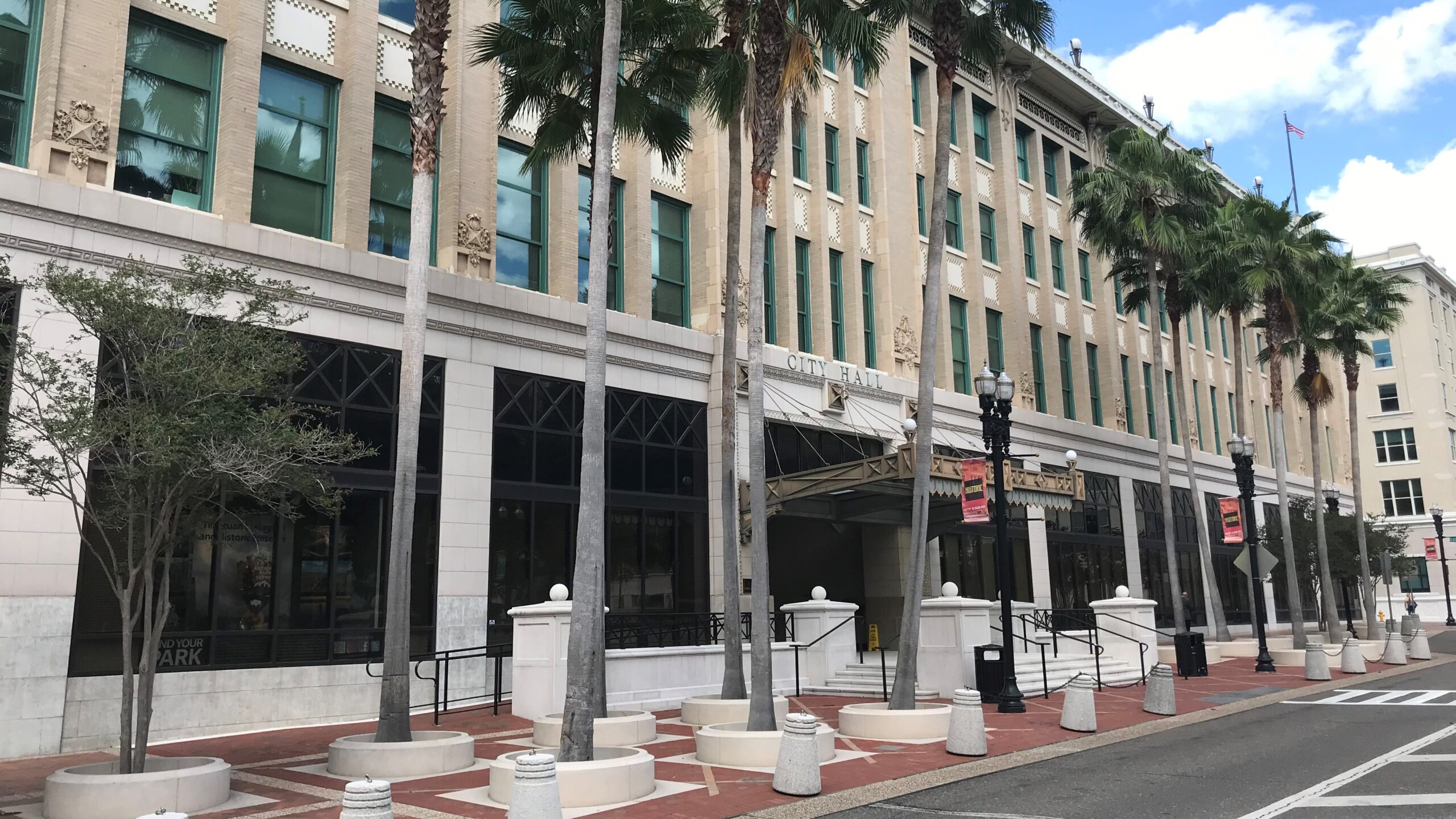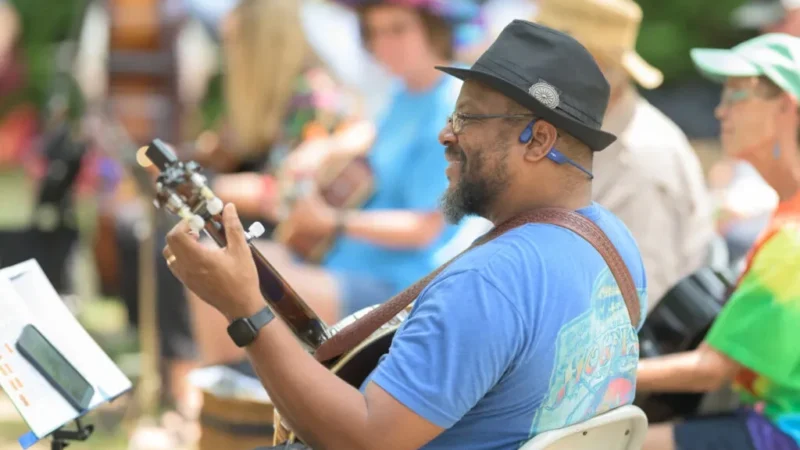The new Jacksonville Journey Forward initiative has given some Jaxsons confidence the city is progressing toward lower crime and eradicting long-standing disparities in the community.
During its first two meetings, the effort’s 11-person board learned about the civil citation system established by State Attorney Melissa Nelson in 2021 and the impact of low literacy scores for Jacksonville’s third grade students.
The discussions are part of an attempt to revive a community hallmark that had a record of success.
Monique Highsmith grew up in the Sherwood community in Northwest Jacksonville and lived in the River City for 50 years.
She worked with Operation New Hope, a nonprofit that helped those who have completed their incarceration reenter society, and saw the benefits of the original Jacksonville Journey initiated during the administration of former Mayor John Peyton.
Highsmith welcomed the new iteration formed by Mayor Donna Deegan.
“It has to be a collaborative effort with all of us,” Highsmith said. “It can’t be this one over here or that one over there. We have to come together as a community and get it done. … We just need to come as one and make it happen. A lot of times we have these boards, these pastors, if we are truly about these children, we will get the job done.”
During the Jacksonville Journey’s previous iteration, which began in 2008, homicides and violent crime in Duval County dropped.
In the Journey Forward’s inaugural meeting in February, Charles Griggs, the city’s director of community initiatives, said a youth-led subcommittee would be created to help the board understand the pressures and realities teenagers and young adults face in 2025.
“I’m so glad they have now taken the initiative to include the young people, include the teens,” Highsmith said. “These are the individuals that are being looked upon, who are committing the crimes and things of that nature. Why not ask them what’s going on?”
What’s on the agenda
Board Chairman W.C. Gentry says the first three meetings are about understanding the scope of the work in front of them. These foundational meetings, Gentry said, will help the board — comprising attorneys, prosecutors, educators, law enforcement and nonprofit executives — devise how to allocate an estimated $600,000 for the fiscal year that ends in September.
“There is no question, there has been a lot written about the two Jacksonvilles,” Gentry said. “It’s been that way forever. As we’ve discussed, the schools (where) the children are not proficient readers when they reach the third grade, it’s in the same neighborhoods.
“It’s been that way for decades and decades. I’m getting really old, and it was that way when I was growing up. We have got to do something about that. Those communities should know that this administration, this group, this board, is committed to trying to help those people who need it the most: That’s our children who are not getting the tools they need to achieve their potential.”
Last week, University of North Florida professor Cheryl Fountain outlined how in some Jacksonville communities education is in direct competition with gangs. One way to make education more appealing is to not solely engage students, but provide students with a sense that they belong.
“Literacy and education is the way to impact crime prevention,” explained Fountain, who is also the executive director of the Florida Institute of Education. “That is a unique understanding that our community has that is not true in the rest of the state or the country.”
Fountain also told the Journey Forward board that closing literacy gaps does not begin once a child reaches kindergarten. Early learning is vital.
Teri DeLucca is the founder and CEO of Impact Early Education, a Jacksonville-based company that trains early childhood educators. DeLucca says socio-emotional regulation — such as helping preschool-aged children keep attention, maintain cognitive flexibility and understand how to calm themselves — will better help them learn their ABCs and 123s.
DeLucca says there is a need to focus on behavior remediation; but, there is also space for Jacksonville to invest in early education and home environments that would close student achievement gaps and potentially moderate in-class behavioral issues once a child is enrolled in primary school.
“A lot of times it seems like (parents) don’t care,” DeLucca said. “But, they are at full emotional capacity. … There is a lot of need for resources, for access to strategies that work, for parents to have access to those strategies and also in the early childhood centers.”
What’s at stake
The impact for not investing in childhood outcomes early may be seen by women like Vicki Waytowich, the executive director of the Partnership for Child Health.
In February’s Journey Forward meeting, Waytowich told the board that Black and Hispanic children are overrepresented when it comes to youth who are entered into the diversion program in lieu of being charged with a misdemeanor.
In February, the Journey Forward board learned that 97% of the more than 900 children who were entered into the Duval County Diversion System of Care during the 2024 fiscal year faced at least one adverse childhood experience.
Incarcerated relatives, substance use in the home and physical neglect are some of the many adverse childhood experiences. According to Centers for Disease Control data, adverse childhood experiences can affect education outcomes and job potential and increase the possibility of sex trafficking and chronic diseases.
Witnessing violence, particularly the murder of a family member, is also an adverse childhood experience.
According to information compiled by Jacksonville Today, the 69 homicides in Jacksonville in 2024 were the lowest this century. The 57% decline in homicides since 2022 was attributed to community collaboration and increased transparency by both Republican Sheriff T.K. Waters and Democratic Mayor Donna Deegan.
Looking ahead
As schools enter their final grading period, there was acknowledgement that summer is on the horizon.
Journey Forward board member Betty Seabrook Burney is a longtime education advocate who created a nonprofit aimed at providing leadership for Jacksonville youth. To her, summertime is a period when children experience learning loss if communities are not intentional about avoiding them.
“There is a face behind every number,” Burney said. “Numbers are one thing. There are children’s faces behind every one of these numbers.”
The board’s next meeting is slated for May 1. Gentry said he expects the Jacksonville Sheriff’s Office to provide details about its crime prevention strategies during that meeting.







